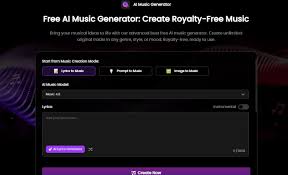Introduction
Game music sets the tone, enhances immersion, and elevates player emotions—but traditional composition can be expensive and time-consuming. Enter AI-powered music tools, revolutionizing how developers create soundtracks.
From indie studios to AAA productions, AI is transforming game music production. But why should you consider using AI? Let’s explore the key benefits and how it compares to traditional methods.

1. Speed & Efficiency: Music in Minutes, Not Months
Creating a full game soundtrack traditionally takes weeks or months of composing, recording, and mixing. AI accelerates this process dramatically.
? Instant Generation – Tools like AIVA and Soundraw can produce high-quality tracks in minutes.
? Rapid Iteration – Need a different mood or tempo? AI regenerates variations instantly.
? Prototyping Made Easy – Test different musical styles before committing to a final score.
Perfect for: Tight deadlines, indie developers, and rapid game prototyping.
2. Cost Savings: High-Quality Music on a Budget
Hiring composers, musicians, and studios is expensive—AI provides a budget-friendly alternative.
?? No Licensing Hassles – Most AI tools offer royalty-free music for commercial use.
?? Eliminate Session Costs – No need to book studio time or live musicians.
?? Scalable Pricing – Subscription models (e.g., Boomy, Mubert) are far cheaper than custom compositions.
Best for: Solo devs, small studios, and mobile game creators.
3. Adaptive & Dynamic Music for Immersive Gameplay
AI excels at real-time, reactive music—something traditional composition struggles with.
?? Procedural Music – AI can generate endless variations to match gameplay (e.g., combat intensity, exploration).
?? Seamless Transitions – Tools like Melodrive adjust music dynamically without jarring cuts.
?? Player-Driven Scores – AI can respond to player choices, enhancing immersion.
Ideal for: Open-world games, RPGs, and VR experiences.
4. Endless Creativity & Experimentation
AI removes creative barriers, letting developers explore new musical styles effortlessly.
?? Genre Blending – Mix orchestral with electronic, chiptune with ambient—AI can do it all.
?? Mood Customization – Need a "dark, mysterious" or "epic, heroic" track? AI generates it instantly.
?? No Musical Expertise Required – Even non-musicians can craft professional soundtracks.
Great for: Indie devs without a music background.
5. Future-Proofing Game Audio
AI is evolving rapidly, bringing innovations like:
?? AI-Assisted Human Composition – Composers use AI to speed up workflow while keeping creative control.
?? Voice-Controlled Music Editing – "Make this track more intense" or "Add more percussion."
?? Neural Network Mastering – AI automatically optimizes mixes for different platforms (mobile, console, VR).
When Should You Still Use Traditional Composition?
AI isn’t perfect—some scenarios still demand human composers:
?? Deep Emotional Storytelling – AI can’t yet match the nuance of a human-composed score.
?? AAA Cinematic Games – Blockbuster titles may still prefer live orchestras for authenticity.
?? Unique Artistic Vision – Some directors want 100% bespoke music.
Solution? Many studios now use a hybrid approach: AI for prototyping and adaptive layers, humans for key themes.
Conclusion: Is AI Right for Your Game?
AI is not replacing composers—it’s empowering developers with faster, cheaper, and more flexible music solutions.
Use AI if you need:
? Fast, affordable soundtracks
? Dynamic, adaptive music
? Easy experimentation
Stick with traditional methods if:
? You require deeply emotional, bespoke scores
? Budget isn’t a constraint
? Working on a high-profile AAA title
Have you tried AI music tools? Share your experiences in the comments!








